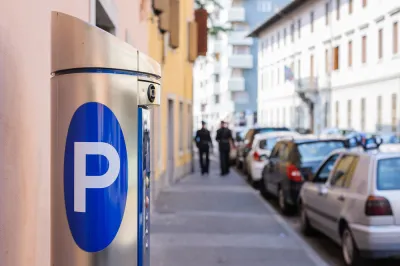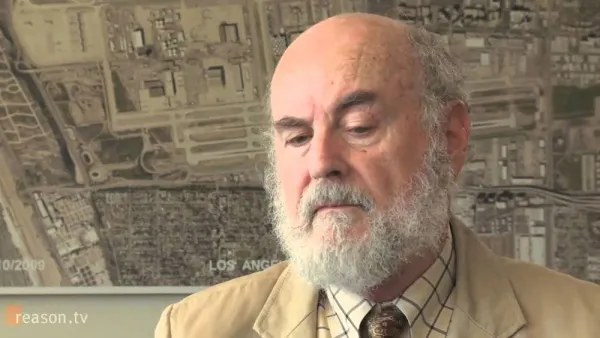The influence of Donald Shoup's classic book, "The High Cost of Free Parking," is becoming more and more apparent in more and more cities around the country.

"A handful of major cities across the U.S. are changing how they charge for some of the most valuable property they manage — on-street parking spaces," writes Rebecca Beitsch to introduce an article for the Pew Charitable Trusts.
Beitsch notes that for a long time, cities haven't valued on-street parking as much as drivers have. That is all changing, however:
Now, some major cities are seeking to take advantage of their supply and motorists’ demand with so-called demand-price parking. Rather than charge a flat rate for each spot in every area of the city, they are demanding motorists pay $4, $6 or up to $8 an hour for a spot on a busy street, close to shops and restaurants, while keeping hourly prices lower on less busy streets just a few blocks over.
Beitsch is describing the tenants of parking as revolutionized by Donald Shoup, as Planetizen readers are aware, while also adding a survey of the cities undertaking new approaches to the pricing of on-street parking. Programs in Washington, D.C., San Francisco, Los Angeles, and Seattle are mentioned—each citied for unique insights into the new practices of parking management. Beitsch also deliberately addresses common concerns about the new parking programs—like if they are harmful to the poor and whether or not they achieve their intended outcomes.
FULL STORY: Cities Try $6, $8 Hourly Parking to Cut Congestion, Pollution

National Parks Layoffs Will Cause Communities to Lose Billions
Thousands of essential park workers were laid off this week, just before the busy spring break season.

Retro-silient?: America’s First “Eco-burb,” The Woodlands Turns 50
A master-planned community north of Houston offers lessons on green infrastructure and resilient design, but falls short of its founder’s lofty affordability and walkability goals.

Delivering for America Plan Will Downgrade Mail Service in at Least 49.5 Percent of Zip Codes
Republican and Democrat lawmakers criticize the plan for its disproportionate negative impact on rural communities.

Test News Post 1
This is a summary

Test News Headline 46
Test for the image on the front page.

Balancing Bombs and Butterflies: How the National Guard Protects a Rare Species
The National Guard at Fort Indiantown Gap uses GIS technology and land management strategies to balance military training with conservation efforts, ensuring the survival of the rare eastern regal fritillary butterfly.
Urban Design for Planners 1: Software Tools
This six-course series explores essential urban design concepts using open source software and equips planners with the tools they need to participate fully in the urban design process.
Planning for Universal Design
Learn the tools for implementing Universal Design in planning regulations.
EMC Planning Group, Inc.
Planetizen
Planetizen
Mpact (formerly Rail~Volution)
Great Falls Development Authority, Inc.
HUDs Office of Policy Development and Research
NYU Wagner Graduate School of Public Service





























